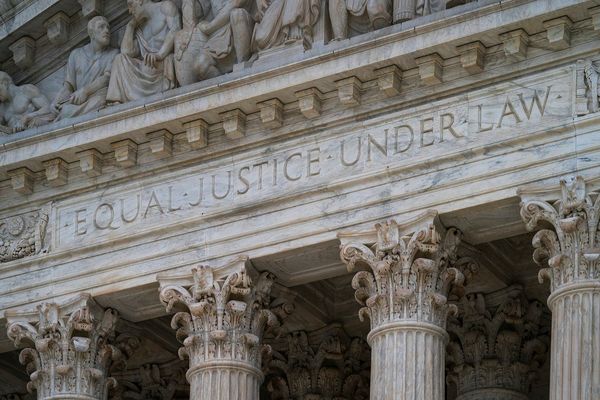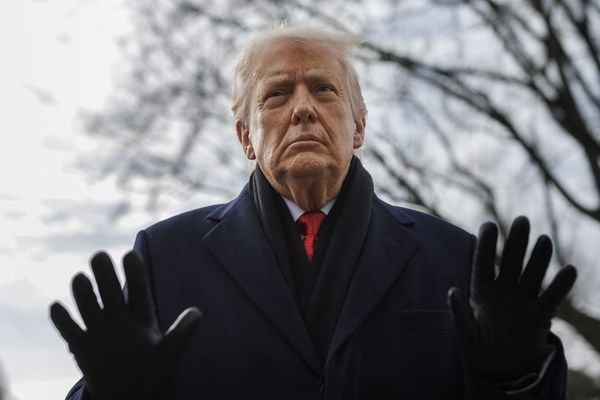
It’s no secret Labor’s bête noire has long been the Greens.
Some might say this owes primarily to the erosion of support the Greens ascendancy has dealt the Labor Party’s left flank over many years. Others might trace its origins to the Greens’ intransigence on issues such as asylum seekers and climate change during the Rudd-Gillard era.
But anyone paying close attention would have noticed the tenor of Labor’s recent attacks on the minor party over the safeguard mechanism — blaming it for the country’s decade of climate policy failure — date more precisely to December 2019, the tenth anniversary of the defeat of Kevin Rudd’s carbon pollution reduction scheme (CPRS).
Marking the occasion, Albanese’s Labor sought to deflect attention from its lack of climate policy, credible or otherwise, by rewriting history. The argument then, as it is now, was that the burden of the country’s miserable failure on climate action could rightly be sheeted home to the Greens’ decision to twice vote against Rudd’s policy in 2009.
It’s a narrative beholden to the charitable assumption that Tony Abbott wouldn’t have sought to extract some form of political capital by railing against the CPRS, had it been legislated. It’s also one that generously assumes the policy — which by that point had been considerably weakened in an effort to both wedge and appease the opposition and mining industry — would have prevented future internal skirmishes within Labor on climate action.
But perhaps most significantly it’s a narrative that carries the decidedly false impression that Labor ever sought to seriously negotiate with the Greens (or the crossbench generally) over the policy, when the converse is true.
Usually, rhetoric this unmoored from reality is labelled disinformation, but here it’s disinformation heavily freighted with naked political design. From its inception, its purpose was to paint the Greens as a naive, politically extreme force more intent on occupying morally absolute positions than on pursuing pragmatic policy outcomes. Naturally, this was always going to be a difficult sell when cast against the Gillard government’s successful negotiations with the crossbench, including the Greens, on climate policy — hence Labor’s erasure of this chapter, too, from political history.
And so, just as Albanese treated the nation to an unedifying rendition of these same political dynamics last July, when the government was moving to legislate its emissions reduction target, so too are the same politics playing out now with respect to the revamped safeguard mechanism.
The Greens, for their part, have flagged their support for the policy in exchange for a moratorium on all new coal and gas projects. Notably, it’s a position that already involves some level of compromise, given the Greens’ on-the-record reservations about the climate efficacy of the safeguard mechanism. Moreover, Greens leader Adam Bandt made clear this “was an offer, not an ultimatum”, thereby indicating the party’s willingness to compromise further with the government.
Notwithstanding this, Labor responded by once again rewriting history in an effort to portray the Greens as morally superior extremists who occupy a space removed from reality. Assistant Treasurer Stephen Jones, for instance, accused the party of risking a “return to 2009” by “making demands that can’t be met”, while Environment Minister Tanya Plibersek claimed “Greens voters would be shocked” to see the party aligned with the Coalition, yet again, to “vote against action on climate change”, telling them the country can’t afford another decade of climate inaction.
Resources Minister Madeleine King escalated this rhetoric by misrepresenting the Greens position as one involving a wholesale stop to all fossil fuel projects, existing and new, while reminding them the country’s energy security still depends on gas. Albanese, for his part, then accused the Greens of trying to “exert their influence”, as though that’s a markedly peculiar phenomenon in a democracy.
In so doing, Labor has — with the help of a largely willing and compliant media — successfully recast the debate as a political test for the Greens, rather than of itself, and one that leaves the minor party in a catch-22 bind. Should the Greens ultimately support the legislation absent any material concessions, the received wisdom is they will look politically weak. Should the party refuse to support it, the force of Labor’s misleading narrative might irretrievably damage it in the minds of many Australians, or so Labor hopes.
All of which invites (or should invite) scrutiny on the factors motivating Labor’s stance. One view is that Labor has rightly gauged the political and economic landscape of what’s achievable so far as climate action is concerned, and is simply not willing to waver from that position. The more credible view is it serves Labor politically to discredit the Greens who, with the Teals, are the only force capable of unmasking the gulf between Albanese’s lofty rhetoric on climate change and the substance of the government’s climate policy.
The prime minister is, in this connection, on the record for observing there is “no ideological opt-out clause” on climate action and, at the Press Club this week, that “meaningful action on climate change is our environmental responsibility”. The Greens obviously agree with such sentiment; the difference between the two parties is that the latter’s policy positions are genuinely commensurate with such pledges while Labor’s are not.
Revelations the Albanese government last week approved a coal-seam gas project through to 2077, as it was negotiating with the Greens, provides a case in point, as does its reticence to introduce a climate trigger in federal environmental laws.
The same can be said of the government’s decision to open up 47,000 square kilometres of Australian waters to oil and gas exploration in August as it was moving its emissions reduction target through the Senate. The list goes on. Inevitably, decisions of this kind fatally undermine the image of any government that has fashioned itself as one committed to decisive climate action.
Writing in The Sydney Morning Herald on Monday, columnist Sean Kelly expressed surprise at the success at which Labor has turned the debate on the safeguard mechanism “into a test for the Greens”, observing it “seems odd they have become the focus” in the media as opposed to Labor.
In truth, as he goes on to allude, none of its success would have been possible were it not for the cooperation of large segments of the media, which have readily and unquestioningly combined to embrace Labor’s narrative as political orthodoxy. By treating climate change as a political game, the media shields Labor’s policies from due scrutiny, giving it licence to reduce the gravity of the climate crisis to little more than a political problem that must be neutralised and managed.
Speaking to Crikey, Bandt said it was wholly within the power of Albanese to end Australia’s decade of climate inertia, pointing out the Greens’ position was one uniformly supported by the world’s climate scientists.
“The onus is on Labor to explain why they are refusing to pass the bill, in favour of continuing to open climate-wrecking coal and gas projects,” he said.
“Whatever is written in the media, the Greens have the people behind us and we have the science behind us. We’re not after the perfect, just the bare minimum. We’re asking Labor to stop making the problem worse [and] that’s a very moderate ask.”
It’s true, as Bandt says, that the science is clearer than it’s ever been. It’s also true the possibility of ending the so-called climate wars is within grasp, as Albanese knows.
And as Labor implicitly acknowledged on the tenth anniversary of Rudd’s failed climate policy, the era of climate denial is long behind us. The challenge nowadays turns on the dissonance between what is pledged and what is done. That is why, in Labor’s view, the Greens were always going to be a problem.







